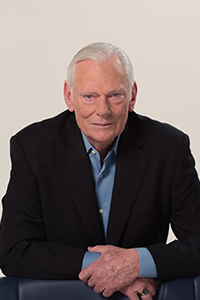
What IS important for any leader is to recognize their individual skill strengths and passions (preferences) and to recognize the skills sets and passions (preferences) of those who work for them, then and only then can they get the most productivity and passion out of themselves and those who work for them.
Important Skills For Good Leadership
One of the most important skills a leader needs to build is to recognize the thought preference necessary to resolve issues/tasks facing a department/organization at any point in time and to call on that thought preference by asking everyone to lean into that preference. That creates great productivity in an organization and it creates a great culture where everyone feels like their strengths are both valued and used.

Analytical – Bill Gates
Bill Gates probably has Analytical as a thought preference. He is best known as a computer programmer, businessman, and philanthropist. He co-founded Microsoft with his partner Paul Allen. He was CEO of Microsoft until January 2000. He is probably logical and data-focused; he probably gets end results and assimilates information easily.

Structural – Jimmy Carter
Jimmy Carter probably has Structural as a thought preference. He is the 39th President of the United States of America. Former President Carter is known for creating systems, for example, the Department of Energy and the Department of Education in the U.S. Government. He is probably a good implementer, follows through, is detail-oriented, and brings order out of chaos.

Social/Relational – Pope Francis
Pope Francis probably has Social/Relational as a thought preference. He is known for his humility, advocacy for the poor and his dedication to communicating in a way that brings people of all cultures and religions together. Pope Francis is probably caring and compassionate and is able to communicate clearly about causes that he advocates. He is probably socially sensitive and tactful.

Social/Relational – Herb Kelleher
Herb Kelleher probably has Social/Relational as a thought preference. He is the co-founder and former CEO of Southwest Airlines. Southwest is consistently named among the top five Most Admired Corporations in America in Fortune magazine’s annual poll. Fortune has also called him perhaps the best CEO in America. Kelleher was inducted into the Junior Achievement U.S. Business Hall of Fame in 2004. One of Herb Kelleher’s famous leadership quotes is, “A company is stronger if it is bound by love rather than by fear.” He is probably socially sensitive, tactful and compassionate.

Conceptual – Martin Luther King Jr.
Martin Luther King Jr. probably had Conceptual as a thought preference. He is best known for his role in the United States civil rights movement as an advocate for nonviolent civil disobedience. Martin had the ability to paint a vision for an entire country in his “I Have Dream” speech. He was probably creative, an experimenter, intuitive about ideas, and was someone who broke down barriers to solutions.

Conceptual – Steve Jobs
Steve Jobs probably had Conceptual as a thought preference. He had a strong vision that called everyone in the company to a higher purpose. He did not set out to build a better computer and that was not the vision around which he rallied everyone. Instead, he said, “We are here to enhance people’s lives.” Without that vision statement, Apple would have never revolutionized the music industry. Steve was someone who broke down barriers to a solution, he was creative and an experimenter.
